It shouldn’t bother me… but it does .... The “Localization is slow”
"When someone tells me that localization is slow, it doesn’t feel good. At this point in my life, that should not bother me… but it does."
When I hear a stakeholder say that localization is slow, it doesn’t feel good. There are some comments I’ve learned to live with, and some statements I just ignore. I know they are not true, or they are just that person’s opinion, and I move on.
But for some reason, in certain situations, I can’t react the same way. I don’t know exactly why. In theory, I should use the same approach, but I can’t manage to do it completely.

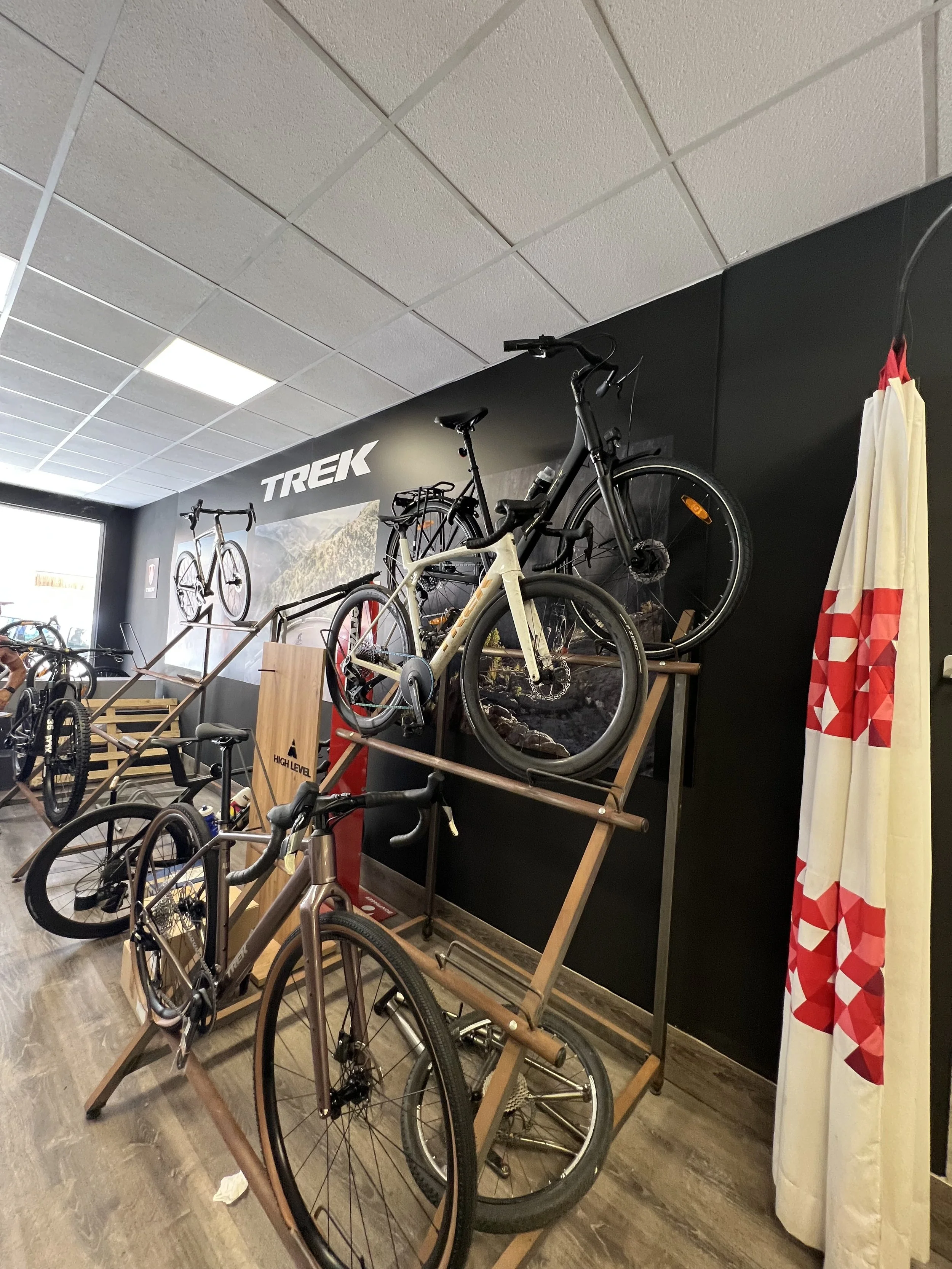
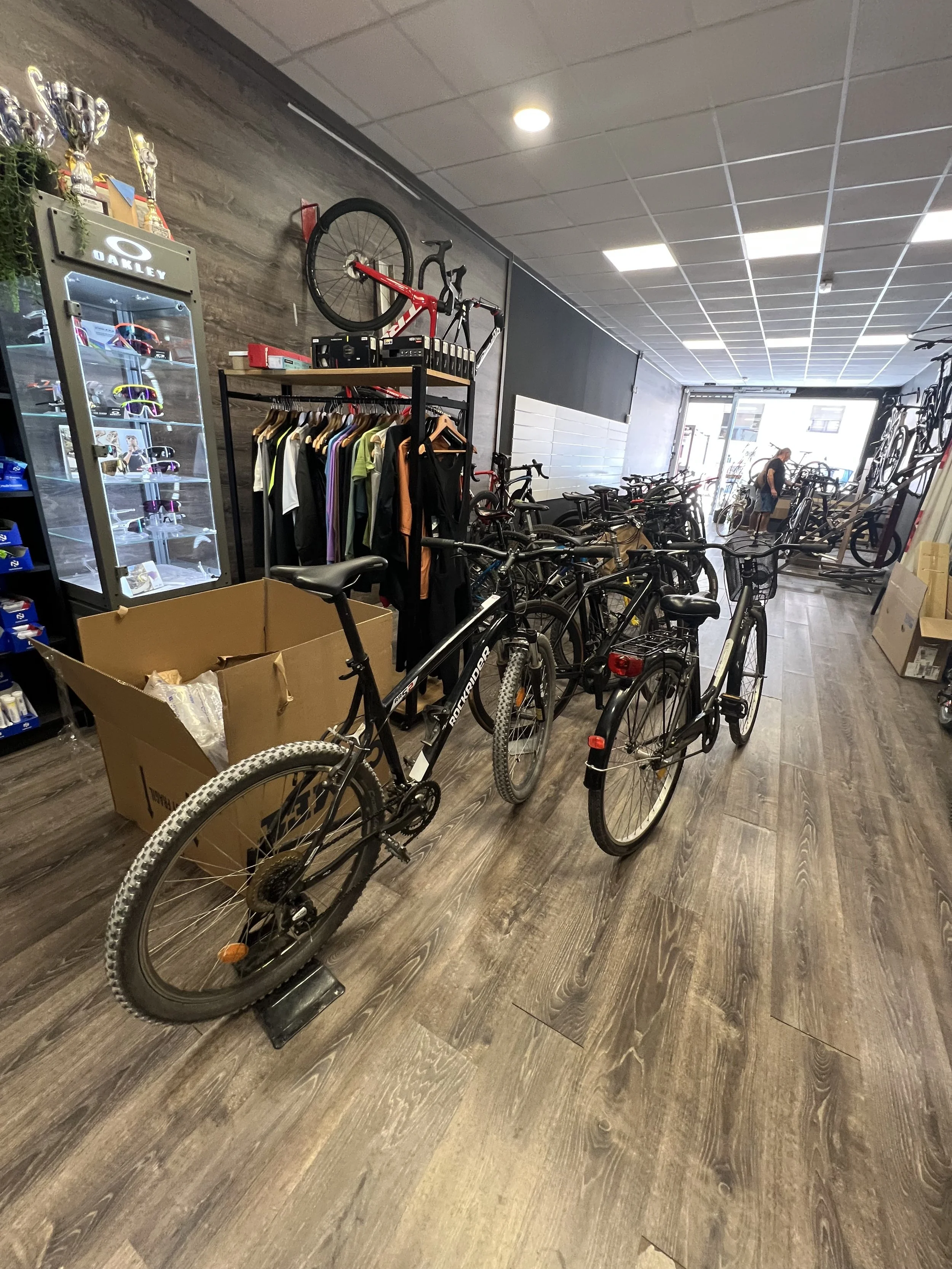
If someone tells me a translation sounds like Google Translate, fine. It’s 2025, and stakeholders still say that sometimes, and I don’t mind anymore. I don’t spend much time discussing personal preferences or small style feedback.
But if someone tells me localization is slow, I can’t apply the same mindset. I find it hard to explain or prove why localization is not slow. I enter in a debate that it’s not worth it, at least for me! But the other day, when I took my mountain bike to the mechanic at my local shop, something in my head clicked. And that’s the main idea of this post, as you will read below.
The thing is, I took my bike to the workshop for a check-up because the gear shift was getting stuck.
I told the mechanic to take a quick look because it was making some strange noises when I changed gears. I had already tried to adjust my shifter myself, but it wasn’t great yet, there was still some friction.
When he told me he would look at it, I asked him how long it would take, and he said “depende” (it depends).
He had other bikes to look at before mine; it would depend on when he started adjusting the derailleur, replacing the cable if needed, and checking the chain. He found it difficult to give me a completion time for my bike, so I left my bike there feeling a bit frustrated.
Click HERE to download the infographic
As I walked home, I couldn’t help but reflect on the situation. I thought it was very slow. Suddenly, it dawned on me: I do the same thing! When people ask me how long it takes to localize a game, I say, “It depends.” And when someone asks me how long it takes to do Localization QA on a website, my response is the same: “It depends.”
OMG, I’m like the mechanic!!! And that’s when I realized that knowing how long it takes to do something, whether fixing gear shifts or localizing content, depends on many factors. Those are the factors I’m going to analyze in my weekly post. So when someone asks us how long it takes, we can explain what it depends on… like the song from the legendary Pau Donés… “Depende” , It depends.
Factors That Make the Localization Duration "It Depends"
Quality of Source Material: The quality of the source material greatly affects the speed and ease of localization. Factors that impact the quality of the source material include:
Consistency: Consistent terminology, phrasing, and formatting will save time and reduce the likelihood of errors.
Source File Format: The format of the source files can impact the ease of localization. For example, files in XML or HTML format are easier to localize than files in a proprietary format.
Use of Placeholders: The localization process is faster and more accurate if placeholders are used in the source files.
Source Language Quality: The quality of the source language, such as grammatical correctness and clarity, affects the speed and quality of localization.
Availability of Context: Context, such as screenshots or style guides, can help the localization team understand the intended meaning of the source material.
Translation Memory: A translation memory will always help the localization process to be faster and more consistent, as previously translated content can be reused.
Availability: Whether you have an in-house localization team or outsource can affect the speed of localization. An in-house team may work faster as they are familiar with the product and company culture. However, they may also be on vacation or sick, causing a bottleneck and making it difficult to know when the content will be localized. On the other hand, outsourcing offers better scalability, and the vendor manager of the LSP can find translators to help with localization tasks, or there may already be external freelancers collaborating regularly, but they may also be busy at the moment. Both situations will make the response to how long localization takes: "It depends."
Complexity of the Content to Translate: Some content is harder to localize, which will definitely impact the time it takes to adapt those contents. For example, texts that appear on a website and are very visible will need more time for localization to find the right words than a printer user guide. Additionally, localizing marketing content versus a web FAQ section requires different levels of time and effort. Marketing content will always be harder to localize since we must consider multiple factors, such as:
Cultural Sensitivity: Marketing content contains culturally specific references, images, and tone of voice that may not translate well or be culturally appropriate in other countries. Translating marketing content requires an understanding of cultural nuances and the ability to adapt it for a new audience.
Style: Marketing content is designed to evoke emotions, such as excitement, trust, or desire. Translating these emotions into another language and culture can be a real challenge, as the same words may not have the same impact.
Visuals: Photos, videos, icons, colors, and other visuals are a big part of marketing, but they can also be difficult to localize. Images and videos may need to be modified to fit local norms and customs, which can be challenging.
Localization Tech Framework: The type of technology setup we have also affects how quickly software can be localized. For example, having a system that makes it easy to transfer content from a content management system (CMS) to a translation management system (TMS) and vice versa can save much time compared to using spreadsheets and email. Believe it or not, some companies still use this 20-year-old method for localization. However, localization can be much more efficient if you have a CMS/TMS and a process for organizing your content structure. A well-organized setup for your content, such as tagging, labeling, and storing inconsistent file formats, will greatly help speed up the localization process.
Output Quality Desired: The desired output quality also affects the time it takes. If we want a premium-quality translation, it will take longer than if we settle for a machine translation with post-editing.
Reference Material for the LQA Phase: The reference material used during the localization quality assurance (LQA) phase, including test plans and test cases, will directly impact the time needed to verify the linguistic quality. I cannot emphasize enough how important it is to provide test cases to LQA teams! Test cases can identify and correct any errors or issues before the product is released.
Availability of Test Automation Tools: Using an automation QA tool in software localization can help speed up the process and save time. The tool can automate certain tasks, such as checking for spelling and grammar errors, ensuring text fits on the screen, and verifying translations. This tool can reduce manual tasks, and the localization process can be completed faster and more accurately.
In conclusion
So, what can we do to speed up the localization process? Well, it won't come as a surprise if I tell you that the more best practices we incorporate into our localization strategy from the paragraphs I explained above, the easier it will be to estimate the speed of localization. Of course, there will always be uncertainty and factors that make the answer "it depends," but it's not the same to give a heads-up than not, it's not the same to have test cases than not, and it's not the same to have an API that connects to the product's tech framework that we are localizing than not.
So, next time someone asks you how long it takes to localize something, we may still answer, "it depends," but at least we can explain what it depends on.
@yolocalizo

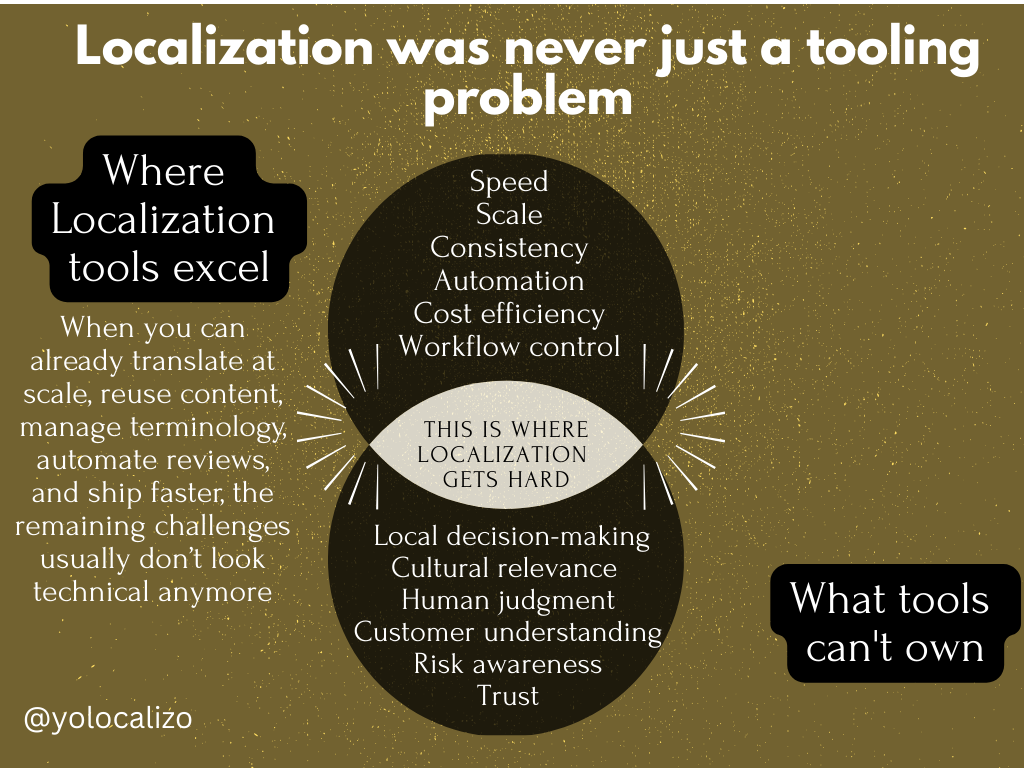
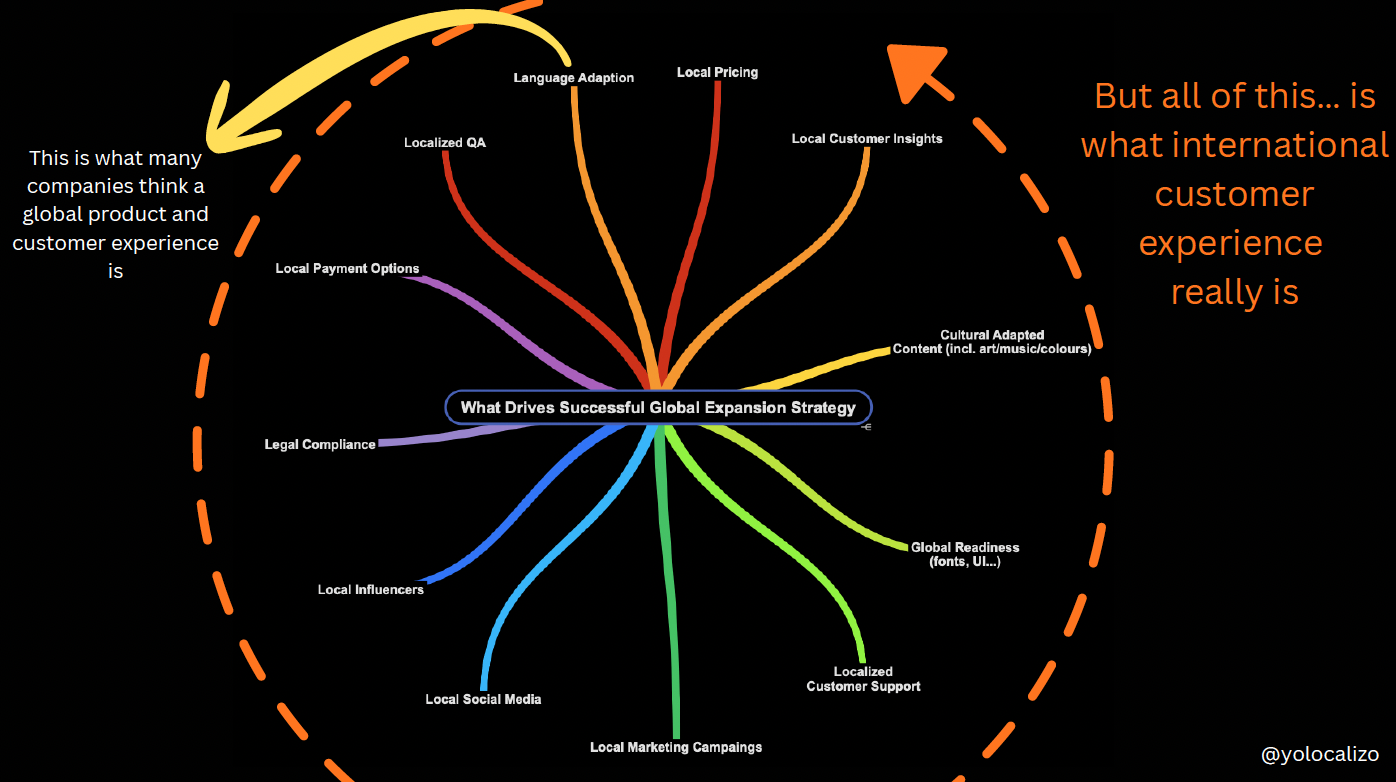
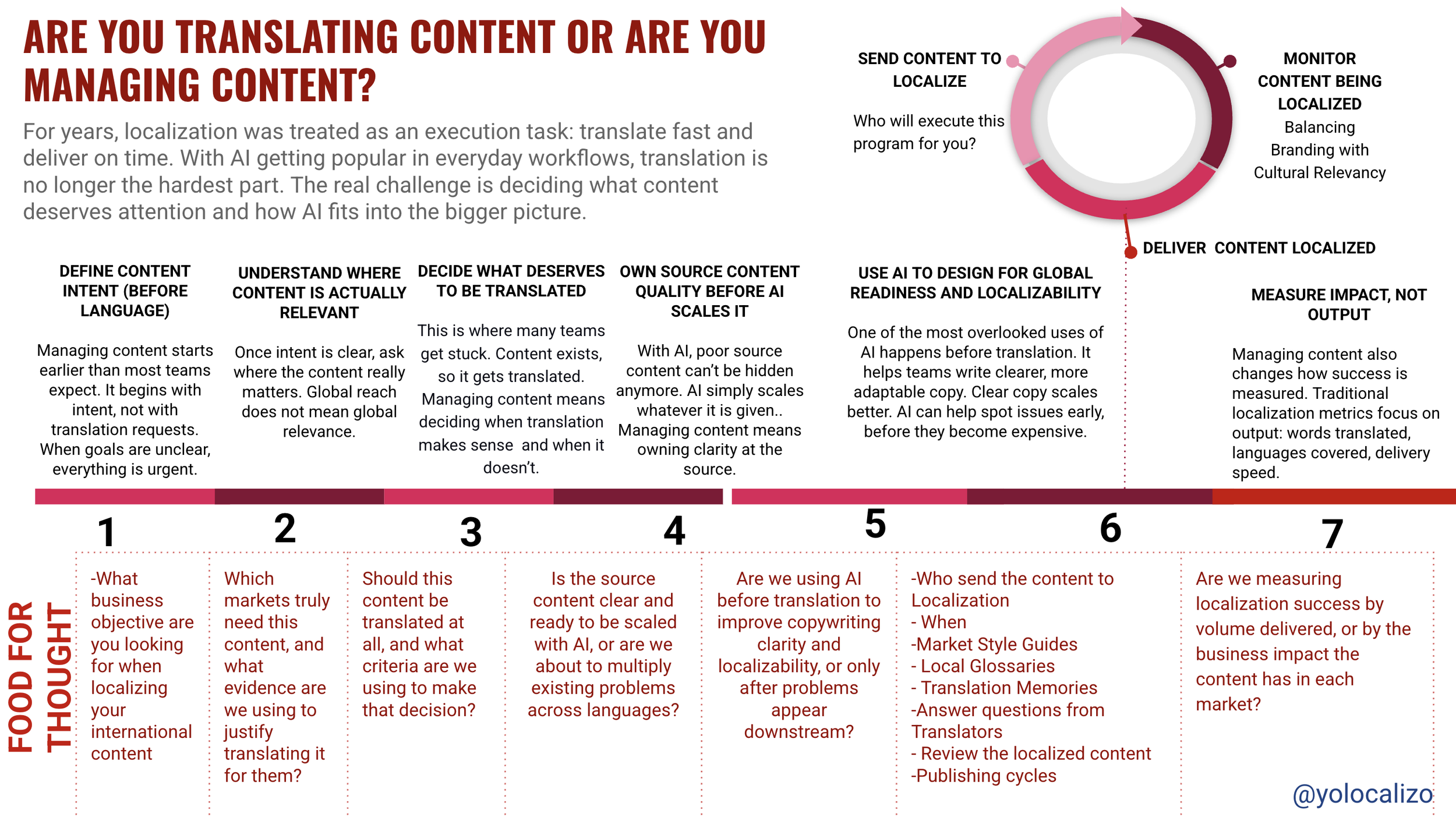

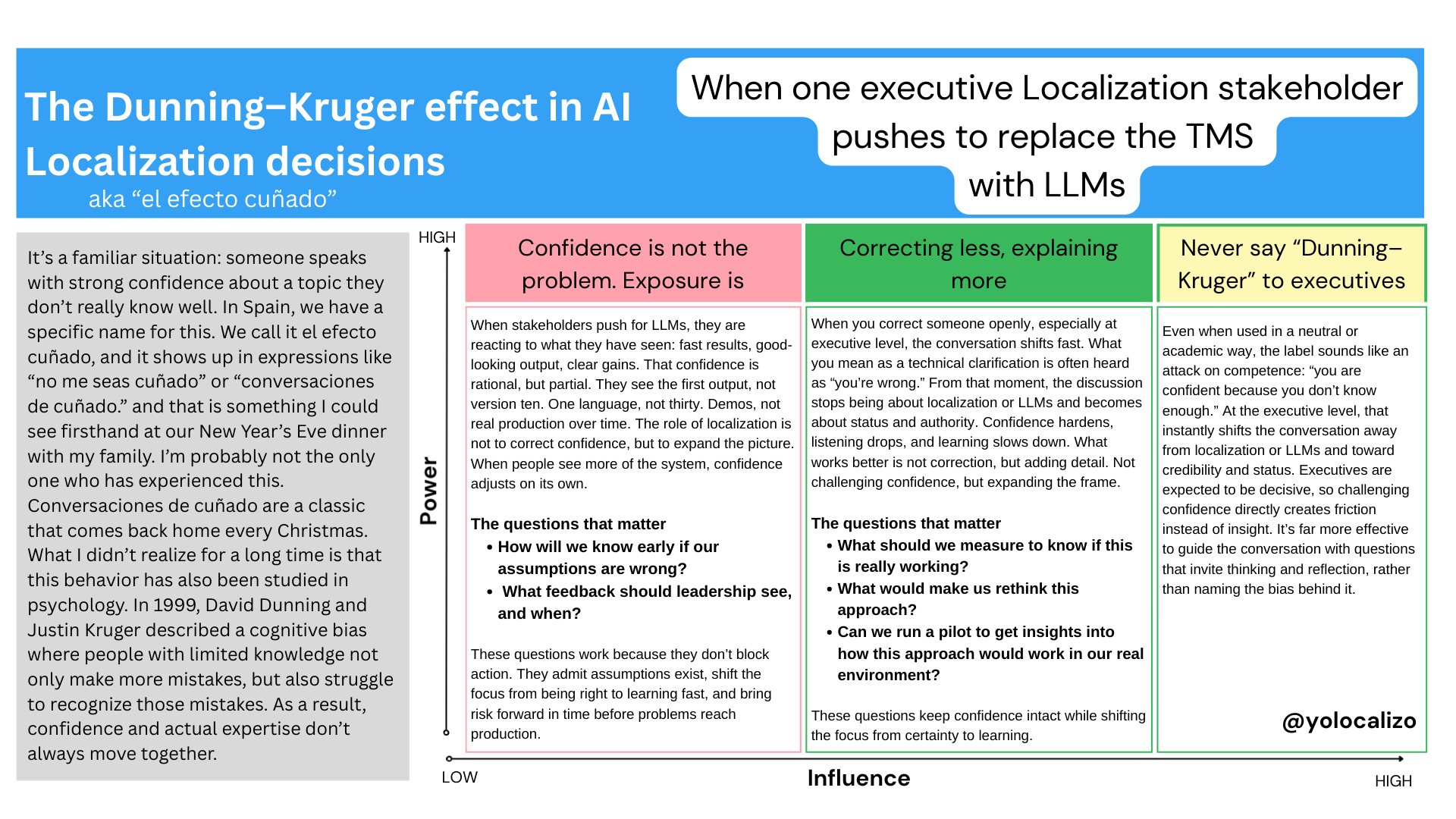


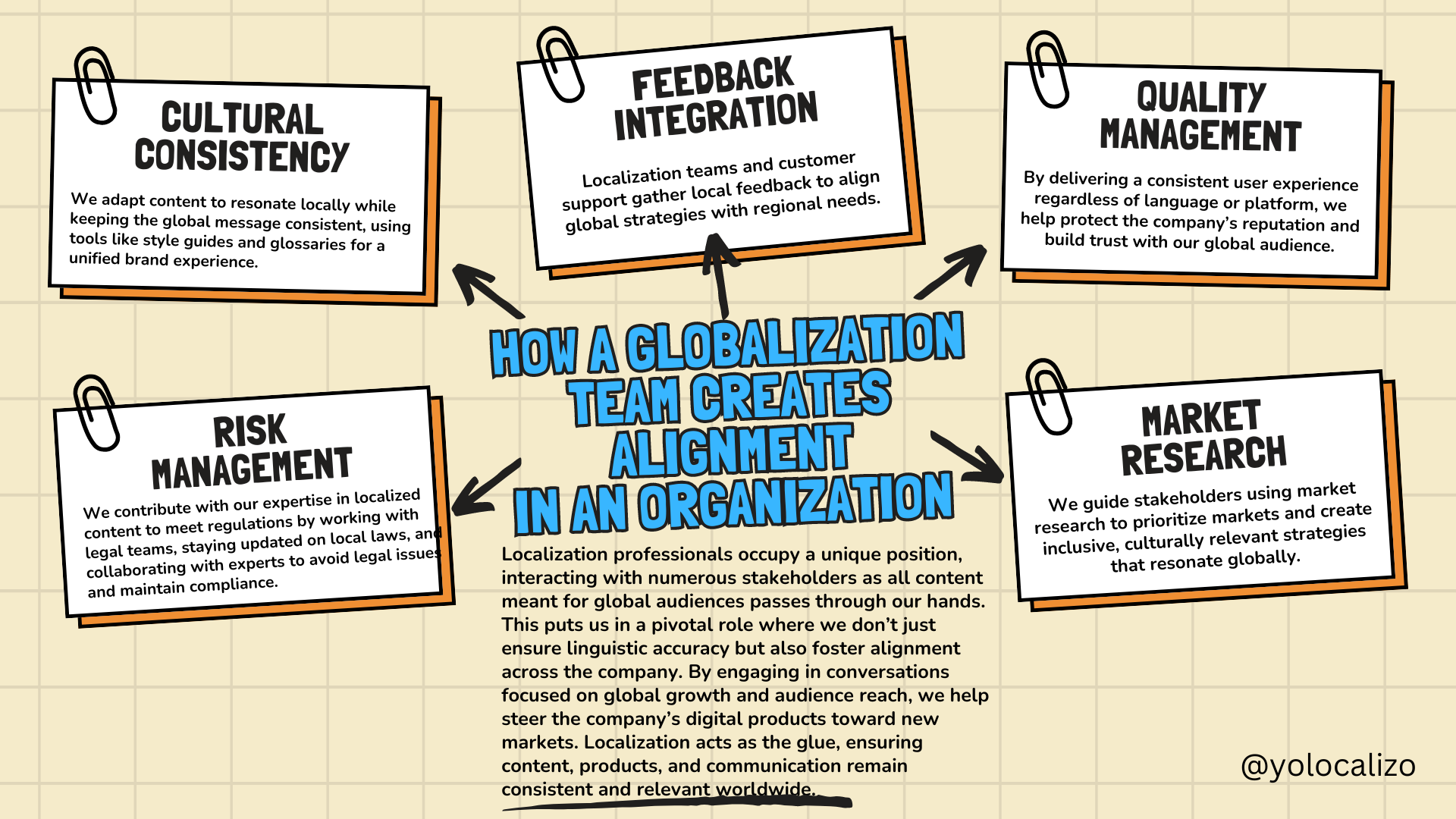

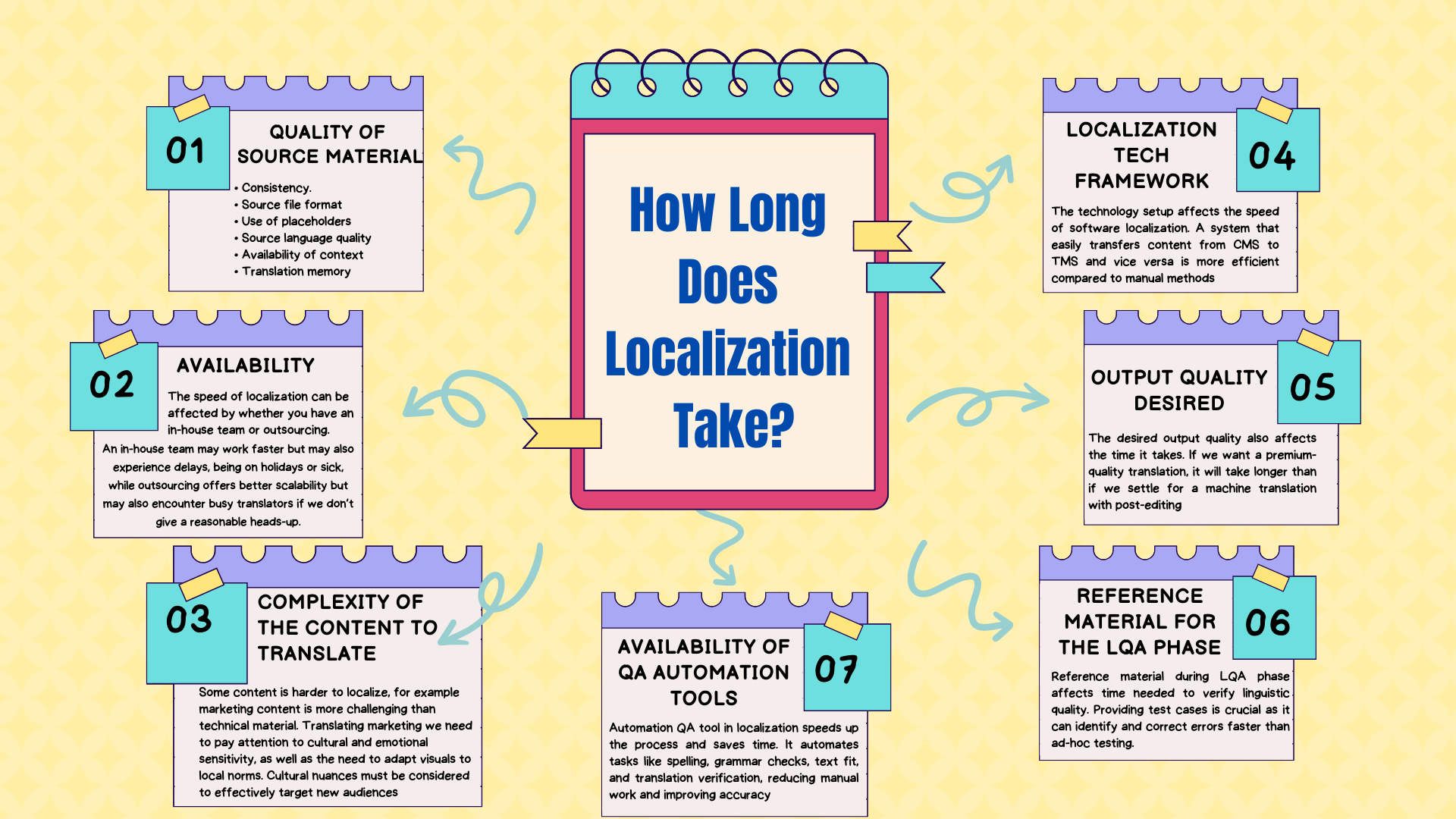


The world of localization is full of small, hidden details.
Some things are deeper than they seem, and I often see between in-context review and LQA in the world of Localization. They might seem the same, but if we scratch beneath the surface, we'll see they're not what they seem.
In this post, I want to focus on explaining the differences between in-context review and LQA, which is something I see being confused quite frequently, and although the tasks are similar ... they are not the same.